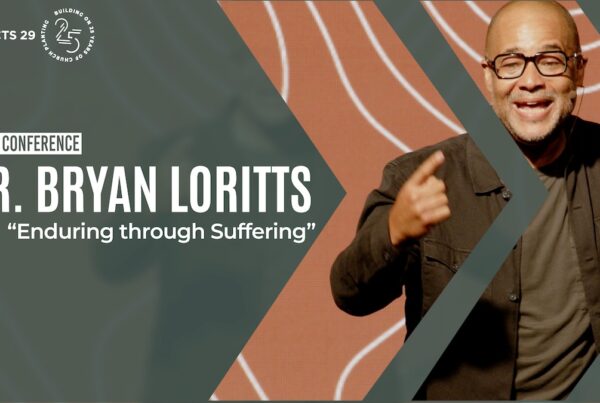Sin and suffering don’t discriminate. We experience them regardless of age, ethnicity, socioeconomic status, and denominational preference. Because trials are expected in a fallen world, we often need help. One way people receive support in times of need is through the gift of counseling.
But what’s in a name?
Not all counseling is created equal. If you’ve ever pursued counseling, you can probably testify to the overwhelming nature of trying to find someone who is qualified, available, and affordable. We also want to ensure our beliefs align with our counselor’s. But what makes discernment difficult is the variance of how we use and understand labels.
For instance, what does it mean for someone to be a “Christian” counselor? Is there a difference between a “Christian” counselor and a “biblical” counselor? What about someone who says they practice a secular therapy model (CBT or DBT) but can “incorporate faith into the counseling sessions?”
These are important questions. Pastors will likely find themselves needing to make counseling referrals for members of their church. In doing so, they want to feel confident in the care and counsel they recommend. Labels aren’t arbitrary, but what’s more important is what counselors believe.
Counseling must be rooted in biblical truth to please the Lord and provide lasting help to his children. With that in mind, let me offer four necessities for biblical counseling. This isn’t an exhaustive list, but without these anchors, there will be a danger of being carried away by false doctrine and the empty philosophies of the world.
[For the sake of this article, “biblical counseling” isn’t necessarily referring to the discipline of biblical counseling, but rather counseling that aligns with the truth of God’s Word.]
Centered on Jesus
Necessity #1: Biblical counseling places Jesus at the center of the counselee’s narrative.
Is counseling “biblical” simply because it quotes or “uses” the Bible? Surely not. If I use Jeremiah 29:11 to try and encourage a counselee that her problems will get better because God has a plan to prosper her, I’m guilty of spiritual malpractice. Quoting the Bible doesn’t matter if I misinterpret and misapply it. Biblical counseling must counsel according to the words of the Bible and its overarching narrative. Click To Tweet
Quoting the Bible doesn’t matter if I misinterpret and misapply it. Biblical counseling must counsel according to the words of the Bible and its overarching narrative. The story of the Bible centers on Jesus. So, we must seek to understand our own story in light of the gospel of Christ. The popular philosophies of our day encourage people to find their meaning, purpose, strength, and hope from within—this is nothing short of the deceptive work of Satan. We have something far better to offer in Christ.
Gospel-Centered Suffering
Necessity #2: Biblical counseling seeks to understand sin and suffering in light of the gospel.
Suffering enters our lives in different ways. Regardless of the source, the gospel provides the only true lens for understanding how to respond rightly. The gospel that confronts our sins and delivers forgiveness is the same gospel that brings God’s care and compassion to those who’ve been sinned against. The gospel that holds out hope for the redemption of the world and the end of all destruction and death is the same gospel that shapes and molds us into the image of Jesus.
Sanctification can be painful, but it’s a uniquely redemptive pain. The gospel is the only tool to rightly interpret our problems and provide the help and hope we need. Anything that attempts to explain or alleviate suffering—apart from the gospel—is nearsighted and powerless. Anything that attempts to explain or alleviate suffering—apart from the gospel—is nearsighted and powerless. Click To Tweet
The Importance of Faithfulness
Necessity #3: Biblical counseling prioritizes the importance of growing in faithfulness.
From Genesis to Revelation, the Bible highlights the necessity and importance of an active and growing faith. Hebrews 11 is a quick survey of the importance of faith in the Old Testament. Think about the widespread impact that the faith of Noah, Abraham, and Moses had on God’s people. The Psalms show us that faith in God is our anchor when the storms of life rage. Paul reminds us that we walk by faith, not by sight (2 Cor. 5:7).
I won’t graduate someone from counseling unless I’ve equipped them to respond faithfully to God amid hardship. Why? Because when people no longer “need” their counselor, they’ll still need their God. One of the greatest gifts counselors can give their counselees is understanding how to navigate hardship in faithfulness to God. One of the greatest gifts counselors can give their counselees is understanding how to navigate hardship in faithfulness to God. Click To Tweet
Our Source of Hope
Necessity #4: Biblical counseling encourages counselees to place their hope in Christ.
In the Scriptures, we see the oppressed (Ps. 9:9), the downcast (Ps. 42:5), the sick (2 Kings 20), and the sinners (1 Tim. 1:15) all put their hope in God. Finally, Peter tells us to set our hope fully on the grace that will be revealed to us in Christ (1 Pet. 1:13). We’ll always place our hope in something. Good counseling will reveal counterfeit hopes and help people embrace the power of hope in Jesus.
Finding help can be challenging. In your pursuit, don’t deprive your heart of the life-giving grace of God. “If your law had not been my delight, I would have perished in my affliction” (Ps. 119:92). Help that doesn’t drive you toward the Lord is no help at all. May the Lord grant you discernment, wisdom, and grace as you seek him in times of need.











